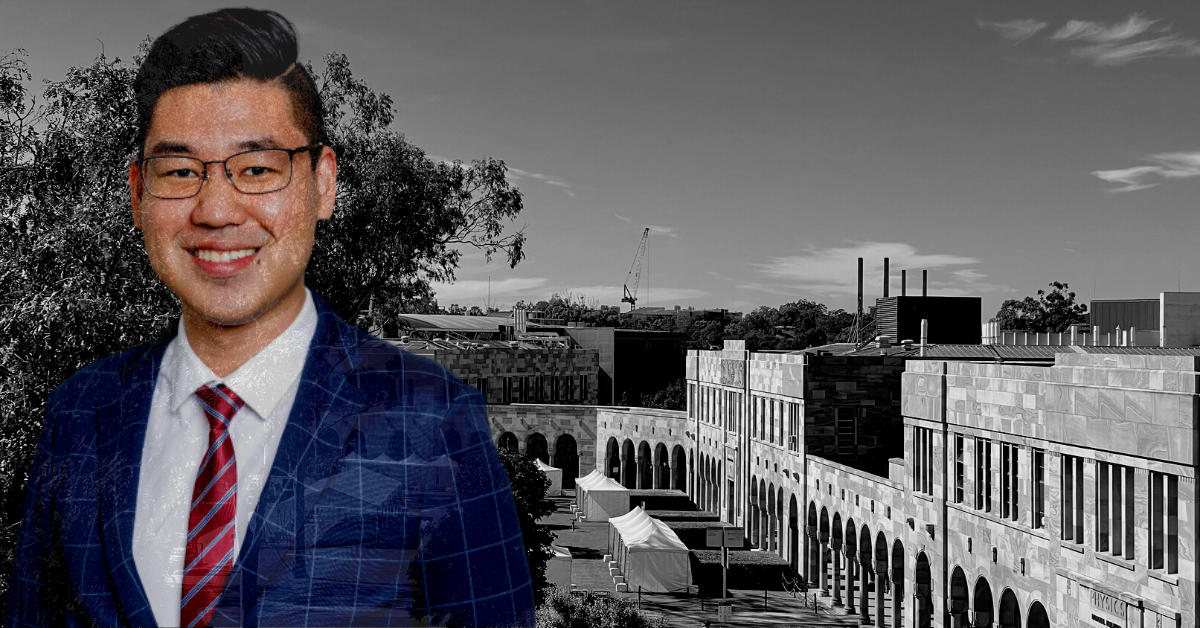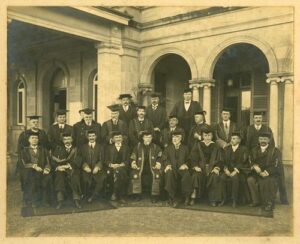
The university’s senate is its governing body, as constituted by the University of Queensland Act 1998.
Each of the 38 public and 3 private Australian universities have governing bodies known variously as councils, senates, or boards. This is a requirement under the Tertiary Education Quality and Standards Agency (Section 58 of the TEQSA Act), and similarly concerns the Australian Charities and Not-For-Profit Commission (ACNC UQ Registration).
These bodies vary in size from 10 to 22 members; at UQ we have a 22 member Senate, with official members – the Chancellor, Vice-Chancellor, and President of the Academic Board – in addition to members appointed by the Governor in Council, elected members of student and staff communities, and ex-officio members (e.g. senior management or student union reps).
The Senate is not a ‘corporate board’, but it functions as though it is – given it provides oversight and governance, rather than managing daily operations.
According to the UQ Senate website, the primary role of Senate is to exercise oversight of the University and its affairs. In this regard, the Senate ensures that the appropriate structures, policies, processes and planning are in place for UQ to effectively manage its activities and achieve its goals.
The senate typically has 22 members in official, appointed, and elected capacities, and elects the chancellors via a secret ballot. See the breakdown below.

You can view a full list of the current Senate composition here.
While many of us were distracted by the brutality of UQU’s on-campus #stupol campaigns, UQ tried & failed to run its own election, via email, for the 35th Senate. Four days in, the returning officer postponed the election. I reached out to one of our current UQ Senators for a chat.
Richard Lee is the first PoC postgraduate senator of UQ in decades; he holds a Bachelor of Education, a Bachelor of Arts, and a Master of Educational Studies in Leadership from the University of Queensland. He is currently a PhD candidate and seasonal academic from the School of Education, and a 2021 Global Change Scholar. Additionally, Richard is the incumbent President of the Association of Postgraduate Students at UQ (he has been busy).
Richard and I met for Boost (an All Berry Bang – with fresh apple juice – and a Pure Eden Super Smoothie, respectively) on the Grassy Knoll, to discuss aspects of his two-year term on the Senate.
First of all, thank you for your time, Senator. Is that the correct terminology?
“Thank you for having me, Billie. To answer your question: “Senator”, “Member of Senate” – either title is used from time to time, although “Senator” makes me feel more important than I really am.”
Why was the election postponed?
“I spoke to the R.O. who said students and alumni struggled to access their ballot due to administrative error. The R.O. decided the issue compromised the validity of the election; so, in the spirit of maintaining fairness and the integrity of electoral process, he made the decision to postpone the election to the 1st November. This means all ballots cast in the initial election period are void and everyone needs to re-vote during the newly declared election period.”
What have you achieved over the past two years, while you’ve been Senator?
“Without tooting my own horn too much, here are a few key things. On the Senate Infrastructure Committee, I have successfully argued – alongside the lobbying of UQ Union – for a student representative to be included on the Student Complex Program Executive Steering Committee for the student union redevelopment. This was a historical win for students. We now have the UQ Union President, Emily Scott, sitting on a project that directly affects the way students access essential services on campus. Moreover, we – my colleagues at the UQ Union and APS, and I – secured more than $600k of SSAF funding to put directly towards bursaries and clubs & socs grants for postgraduate students by 2023 – that is more than 35 times the funding available for postgrad students this year. We have also successfully lobbied UQ to take actions towards divestment from fossil fuels, and taking the charge in leading the industry in taking climate actions seriously. Additionally, I played an active part in the discussion on providing support for international students during the initial COVID-19 pandemic period.”
How should students vote?
“From my experience, being on the Senate goes beyond the 7 meetings in the Senate room, it is the constant engagement with the University population and balancing different interest groups and stakeholders. There is tension between the role of being a representative for a specific constituency and acting for the best interests of the entire university. Senators are board members for an institution with a budget over $2 billon, we cannot afford the luxury of single-issue candidates.”
Are you running for re-election?
“Yes, I am.”
It says on the Senate website that you have completed 3 degrees from the University of Queensland – exactly how old are you?
[Redacted]
Do you know what really happened to the mother duck during Bloom Festival?
[Redacted]
Do we know for sure that there is asbestos in the Schonell Theatre roof?
[Redacted]
Thank-you for your time, Mr UQ Senator Richard Lee.
“Cheers, Billie.”
Visits: 1192


